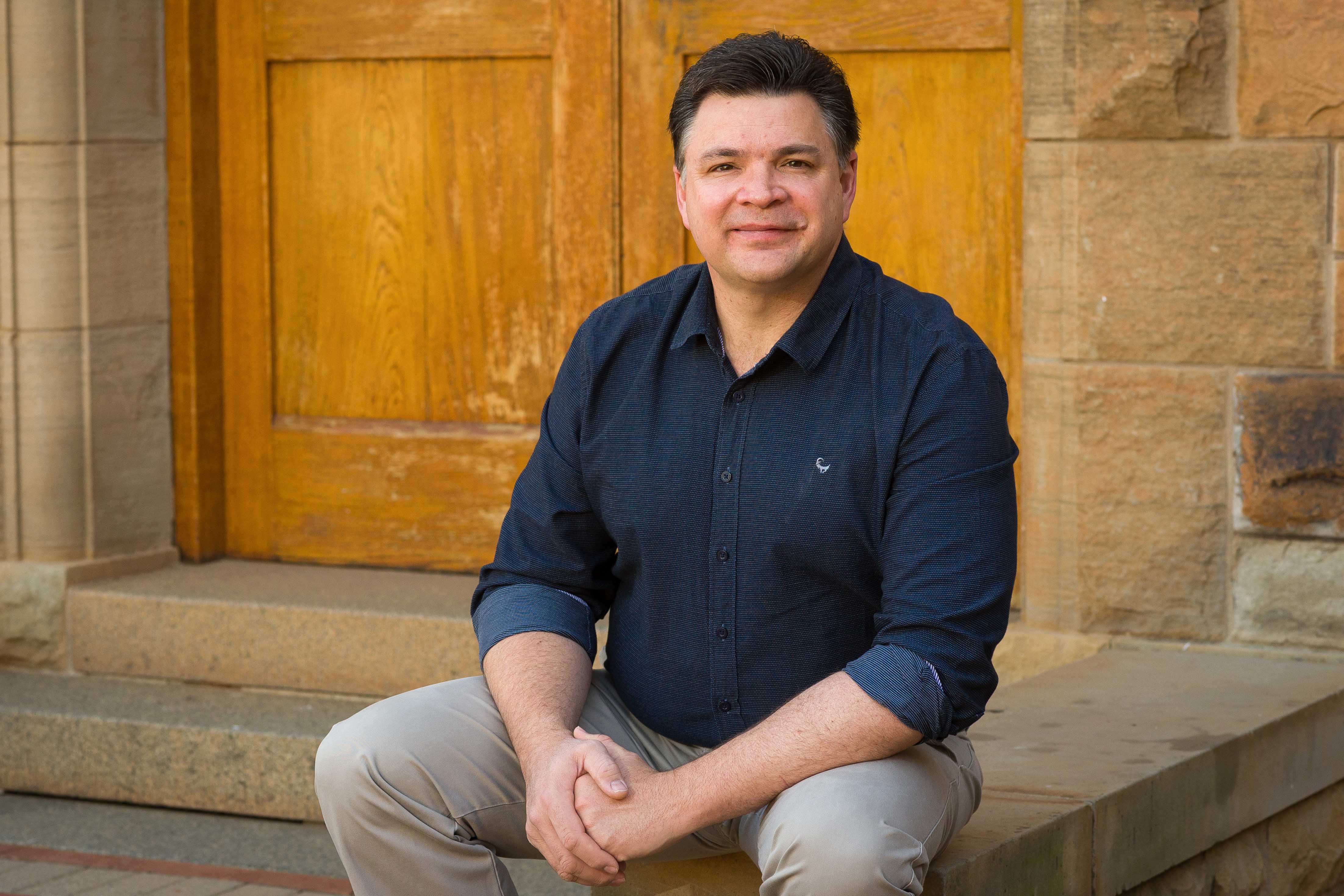Zander Myburg and co-workers awarded US-DOE grant to decipher woody biomass production and environmental interactions of eucalypt trees 2021-10-04
Professor Zander Myburg, Director of the Forest Molecular Genetics (FMG) Programme in FABI will lead an international team of researchers in a United States - Department of Energy (US-DOE) funded project for large-scale genome sequencing to decipher woody biomass production and environmental interactions of eucalypt trees.
The project "Eucalypt genomic resources for woody biomass production and carbon drawdown" will be funded through the Community Science Program (CSP) of the DOE's Joint Genome Institute (JGI) as part of the 2022 CSP Call. The genome sequencing and analysis will be done at the JGI and other associated institutes such as the HudsonAlpha Institute. The project leads, Prof. Zander Myburg at the University of Pretoria (UP), Prof. Justin Borevitz at Australian National University (ANU) and Prof. Jill Wegzryn at University of Connecticut (UCONN) and their teams bring together expertise in forest molecular genetics, tree genomics and computational biology. Prof Myburg holds the Chair in Forest Genomics and Biotechnology in the Faculty of Natural and Agricultural Sciences and is affiliated with Innovation Africa @UP at the University of Pretoria.
Fast-growing woody plant species from the sister genera Eucalyptus, Corymbia and Angophora, jointly known as the "eucalypts", include some of the most carbon-dense vegetation on earth and hold great promise for carbon drawdown through restoration and plantation forestry. Eucalypt species and hybrids also constitute the most widely planted hardwood crop globally (>20 mha) serving as renewable biomass feedstocks for timber, pulp, paper, textiles, food additives, pharmaceuticals and a wide range of other lignocellulosic products. They also have some of the most diverse secondary metabolism of all plants and therefore offer a rich collection of genes and pathways for novel bioproduct development.
The DOE-JGI project will see more than 3,700 eucalypt tree genomes sequenced of which 2,200 are in common garden field trials in South Africa and 800 in similar landscape genomics trials in Australia. These trials will be hosted and maintained long-term as a resource for the international community. To unravel the vast genome and chemical diversity of the eucalypts, the JGI and project collaborators will also perform genome sequencing for most of the more than 900 eucalypt species in Australia, including members of Eucalyptus, Corymbia and Anghophera. The project aims to generate resources for genome-assisted improvement of woody biomass crops and for understanding how trees interact with changing environments in view of having to adapt to rapid climate change. The project follows on from a previous DOE-JGI funded project that generated the genome of Eucalyptus grandis as a reference for this iconic group of woody plants.
Participation of Prof. Myburg's research team at UP is supported by South African forestry industry partners and by strategic funding from the Department of Science and Innovation (DSI) and the Technology Innovation Agency (TIA) of South Africa, including a new TIA-funded high-throughput robotics DNA isolation facility and Tree DNA Biobank at the University of Pretoria.



